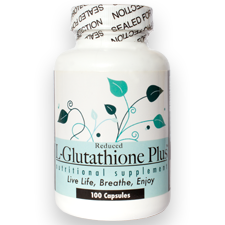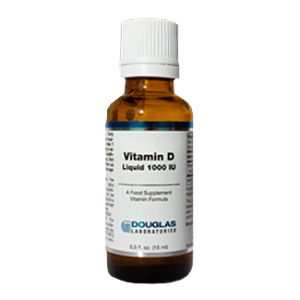L-Glutathione for Nebulization
Glutathione is a key nutrient in many other aspects of health. Glutathione is essential for reducing oxidative stress in the brain and has been found to be in a low concentration in people suffering from chronic diseases linked to oxidative stress, such as Parkinson’s, Autism, ADHD and depression.
The eyes are known to contain very high concentrations of glutathione, and it is particularly important in maintaining a transparent lens. Studies show that it protects against common eye diseases, including glaucoma, cataracts and retinal diseases.
Glutathione facilitates the immune system in a number of ways, especially by protecting them from destruction when they are being produced. Glutathione also supports the growth of immune cells called killer cells that attack viruses.
Glutathione is the most powerful anti inflammatory agent in the lungs and plays a key role in neutralizing the toxic free radicals ( Reactive oxygen species) that are behind the intense inflammation causing asthma. These toxins are produced in the lungs by allergens, toxins and also when the lungs are breathing in oxygen. The lungs naturally produce glutathione to counteract their toxic effects, and as asthmatics are continuously using their supply, they have much lower levels making them even more prone to inflammation. Research has shown that the glutathione pathway is one of the most important pathways for the lungs.
Nebulizing glutathione very quickly replenishes low supplies and tackles the cause of asthma at its root. Glutathione produces short-term quick effects as well as long-term health benefits. Glutathione is a very powerful mucolytic, and by breaking down the mucus blocking breathing tubes, it produces quick relief in breathing. Glutathione is also a powerful anti-inflammatory drug, and this property will produce a relaxation of the breathing tubes.
Glutathione increases the volume of air entering the lungs and improves breathing by doing so. It also increases the oxygen saturation of red blood cells, which means that more oxygen is carried to the tissues. Studies also show that glutathione reduces the damage caused by smoking. In the long term, glutathione offers many healing benefits for asthma and for other organs. By tackling the root cause of inflammation, rather than inflammation itself, glutathione preserves the normal functions of the body and provides a superior quality of healing.
Glutathione is also a key nutrient for maintaining a healthy immune system, which is important for preventing asthma.Glutathione increases the white cell counts and so helps reduce viral infections in the body. Equally important is the detox property of glutathione in the lungs. Glutathione is vital for removing toxins and allergens that accumulate in the breathing tubes of people with asthma and continue to fuel inflammation. Inhaling glutathione means that these toxins are very quickly removed from the body and prevented from causing inflammation.
But the benefits of Nebulizing Glutathione extend into the other systems of the body. People with asthma are very likely to develop other chronic diseases later in life, and incidentally, these diseases are also associated with chronic glutathione deficiencies and include heart disease, diabetes, cataracts, weight gain and chronic fatigue.
Glutathione will be most effective for elderly asthmatics, that will usually have cardiovascular problems. The medications taken for asthma, such as salbutamol and steroids, have a damaging effect on the heart and the arteries. Long-term use of steroids will cause high blood pressure, and this puts strain on the heart. Salbutamol also increases heart rate, and this as well increases the stress on the heart as well as causes the production of the toxins ROS that causes more inflammation of the heart. Glutathione is also very important for maintaining the health of the heart and arteries. Taking glutathione for asthma will also help improve the general function of the heart and prevent the risk of contracting heart disease.
Food Sources of Glutathione include Whey protein, eggs, milk, meat, asparagus, watermelon, avocado, kale, cauliflower.
Only the Reduced form of glutathione
The form of glutathione that is ideal for nebulization is called ‘ Reduce Glutathione. This has been specially formulated with Sodium Carbonate, which makes it dissolvable in water. Please do not use other forms of glutathione supplements, such as ordinary capsules. Those are not suitable for use in a nebulizer. Any other form of glutathione can cause bronchospasm.
Open one capsule of glutathione ( 750 mg…) into 10 mls of water. It dissolves very quickly. Add the mixture to the chamber of the nebulizer, turn on the nebulizer and then inhale. The vapour has a very mild sulphur smell, but the experience is painless, and you should be able to breathe in the vapour without struggling through the mask.
Ideally, use for 10 – 15 minutes 3 times daily or as often as required, which may be every 2 hours. In the proceeding weeks or months, the amount required will gradually diminish. The mixture will last for between 2-5 days depending on the frequency of use and will store for up to a week if covered properly. An egg cup is sufficient for mixing, and covering it with a foil should be sufficient, but ensure that the solution never comes in touch with the foil to prevent loss of potency caused by metals.
The concentration of Glutathione solution can be increased or decreased depending on the requirements, which are based on the severity of the attack as well as age. Children below ten years should be started off with half the dose – 750 mg in 20 ml of water. People suffering from more severe asthma (those using inhalers several times daily) should use double the recommended dose, which is 1500 mg in 15 ml of water.
Glutathione is the most powerful antioxidant in our lungs as well as being a crucial antioxidant for the rest of the body. Antioxidants are compounds that fight toxins called free radicals which are now recognised as the primary cause of asthma and other chronic diseases.
Today antioxidants are considered the singular most important group of compounds for preventing and healing chronic diseases, slowing down ageing and rejuvenating the body. Among the variety of antioxidants that are beneficial to the body, Antioxidants are probably the most important and the most powerful. Glutathione has been described as ‘ The mother of all antioxidants’ because it is required to maintain the active state of other equally powerful antioxidants, including Vitamins C, Vitamin E, CoQ10 and Selenium.
Glutathione is found in every single cell in the body, but it plays a very active role in the lungs, where it is maintained in very high concentrations and where it is required to neutralize massive amounts of toxins that enter the lungs and are generated in the lungs during breathing.
Glutathione exists in an active state when it is in a reduced form and hasn’t been used up and in an inactive or oxidised state when it has been completely used up. In a healthy body, 90% of glutathione is in the reduced and active form, while only 10% is in the oxidised or used-up state. The reverse is seen in asthmatics, and without glutathione, toxic free radicals build up, causing inflammation which leads to asthma.
The deficiency of glutathione will also result in the deficiency of other antioxidants that equally play a key role in maintaining health, leading to prolonged illness and other health complications.
Glutathione is produced naturally in the body from 3 amino acids, glutamate, glycine and cysteine, but studies show that the levels naturally start to fall with age, and by age 60, we have a third of supplies at age 20. This means that people with a genetic dysfunction affecting glutathione production in the body will suffer from more chronic diseases than normal people. Studies show that virtually all chronic diseases show low levels of blood plasma glutathione. Many other studies confirm that asthmatics are severely and chronically deficient in glutathione.
Glutathione is produced in every organ in the body, but most especially in the lungs. Studies show that the concentration of glutathione in the fluid lining the lungs are 140 times the concentration in the plasma. A high concentration is required to keep the lungs functioning properly and to prevent lung disease. Studies have confirmed that low levels of glutathione occur in asthma, and this deficiency is the primary cause of chronic inflammation observed in asthma.
A growing body of research now points to glutathione deficiency as a primary cause of asthma.
The production of glutathione in the body is controlled by our genes, and studies have shown that people with asthma have a genetic defect with the enzymes that produce glutathione leading to glutathione deficiencies which invariably cause asthma. Genetic defects not only preclude disease but also increase the risk of an illness occurring. And so, genetic defects that involve glutathione mean that factors that increase the requirement for glutathione will increase the risk of asthma in predisposed people.
Research strongly points to the introduction of foreign proteins in the body as a source of pressure on the glutathione system, probably from the excessive amounts of free radicals generated. Scientists have implicated vaccines as a likely cause of childhood asthma.
A team of New Zealand researchers followed 1,265 children born in 1977. Of the children who were vaccinated, 23 per cent had asthma episodes. A total of 23 children did not receive the DTP vaccines, and none of them developed asthma (Kemp et al., 1997).
that a 1994 survey of 446 British children, most of them eight years old, showed that 91 received no vaccinations in early childhood. Only one child out of 91 got asthma. About 11 per cent of the other 355 children who had been vaccinated with pertussis and other vaccines had asthma.
Vaccines contain many toxic chemicals that are known dangers to the body, including foreign animal tissue. The immune system is not fully matured after birth and will continue to do so even into childhood and, to a lesser extent, adulthood. A young immune system gradually learns what’s harmful and what isn’t through a controlled immune response. In vulnerable people, the sudden introduction of vaccines can overwhelm and distort the immune system causing various diseases, including asthma. Vaccines contain a myriad of toxic substances, including chemical agents such as thimerosal as well as many animal antigens, including chicken and monkey tissues. It is not far-fetched to assume that these compounds will skew the immune system of some people.




